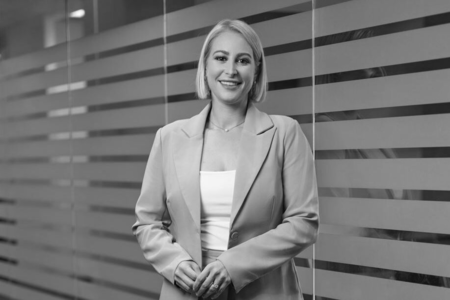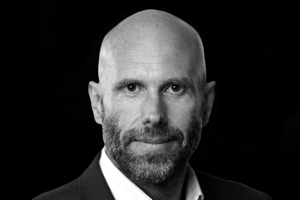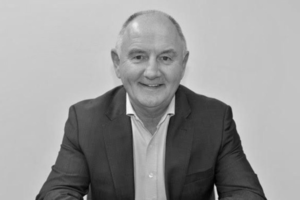It ain't me, babe: A message to FASEABY JASON ANDRIESSEN | THURSDAY, 22 FEB 2018 11:19AMIt's official. There's a furore building among financial advisers over proposed education standards. And the big surprise is that the noise isn't coming from the usual quarters. Upgrade your subscription to access this article
Join the growing community of financial advisers
with unlimited access to our latest news, research and analysis of the industry.
Become a premium subscriber today. |
Latest News
Findex partners with brokerage firm to deliver 'best-in-class' service
Findex is entering a joint venture with Ortus Financial to bolster its expertise and breadth of its service.
ASIC funding levy to charge advisers $46.2m
The financial advice sector can expect to contribute $46.2 million to ASIC's industry funding levy for the 2025 financial year, new estimates show.
ASIC releases new relief for reportable situations regime
ASIC has provided AFSLs new reliefs to help them manage the reportable situations regime, which includes extending the length of investigations reportable from 30 days to 60 days.
TA Associates invests in Viridian Financial Group
TA Associates announced it will make an undisclosed investment in Viridian Financial Group to help the latter accelerate its next phase of growth.
Further Reading
Cover Story

Moving mountains
MAGDELINE JACOVIDES
FOUNDER & FINANCIAL PLANNER
MAZI WEALTH
FOUNDER & FINANCIAL PLANNER
MAZI WEALTH
On top of running a successful practice, Mazi Wealth founder Deline Jacovides is a fierce advocate for closing the superannuation gender gap and has built a highly popular social media presence that takes financial literacy to the next level. She tells Karren Vergara where her passion comes from and how she integrates it all with family life.
























It ain't me for sure. thanks Jason for your thoughts that so many share yet so few have the courage to freely express without fear of being targets.
Extremely well written and relevant.
This piece represents the feelings of the vast majority of professionals that I speak to within our industry. It will be extremely disappointing if FASEA do not take heed.
Thanks Jason for the article, it seems really obvious to me too. I have no issues with taking on additional studies to broaden my knowledge and skills. However, when it is a re-hash of the same thing that I have done and practiced for the past 20 years, it is completely counter productive.
Great article Jason. I recently read an article on the upcoming new education standards by IFA magazine. A straw poll they conducted advised that of the over 3000 respondents, 75% said they would exit the industry in preference to meeting the new and excessive education standards required by FASEA. So how does the advice industry look if that were to occur and a huge proportion of the experienced professionals were to retire early as a result? Where does that leave Australians? FASEA must understand that where they land on this one WILL have massive positive or negative ramifications on the future of advice for Australians. In my 22 years as an adviser I consider this to be the single biggest watershed moment the industry has faced. Let's hope that when FASEA say they are consulting with the industry they will actually be listening. Lets also hope that the industry comes together on this one to land in the right place...for once!
Great article - thanks. If this industry says that our qualifications are now not enough, surely then we should go back and look at the advice I've given over the last 10 years. If this "really" is about protecting the client, why would we not focus on what advice I've given, rather than what advice I might give after 2024.
You're right Jason. Financial Planning degrees weren't around when I started so I did a M App Fin instead, on top of a BCom, then finished with DFP, ADFP and CFP. And picking up the mess since then. Fair dinkum.
Ask yourself who is really pushing for this to get through...is it the educators or board hierarchy looking to get cushy jobs with the educators...or is it the big end of town looking to bury small operators in text books they have read before! Conspiracy theory maybe...but maybe not!!
Quote: "Professional advisers have good reasons to be confident and embrace the future. The value they add to their clients is real and meaningful. And CoreData has proven it.
In research conducted for Sunsuper, CoreData found that compared with the unadvised, clients of financial planners can sustain a higher quality of life, have more overall financial wellbeing, feel more financially secure, and feel they have enough money to do what they want in life." Quote end
With respect, CoreData did not *prove* that financial advisers are this helpful. They only showed that financial advice clients are better off. That could be because financial advisers add value but that could also be because people who are clients of financial advisers are, as a group, already much more responsible, healthy and well and hiring a financial adviser is simply one more responsible item they do. In the latter case it would be entirely possible that advisers add lots of value, no value or even harm their clients. All scenarios are compatible with the CoreData result. To discern cause and effect requires a very different investigation.
(The technical term is called a confounder - if financial advice clients are different from other people before they become clients - and I suspect that to be the case - then that difference may be more important (or less important, that is unknowable from the CoreData results) than the fact they receive advice. A good example of a confounder is that coffee drinkers have higher rates of lung cancer even though coffee doesn't cause lung cancer. The confounder here is smoking - coffee drinkers are more likely to be smokers and the smoking accounts for all the increase in lung cancer.
Obtaining a degree shows we have learned the basics and have the capacity to read and learn. Meeting our ongoing CPD requirements ensures we keep right up to date with the world as it changes. FASEA should be insisting that we go back to University to teach rather than waste our time going back to "learn" the basics again.
Spot on.
We know FASEA consultation period ends on the 29th of June, but it's supposed to start early 2018? A bit vague.
FASEA hasn't even got contact details on their website. So where do we send our feedback?
One good thing about this process so far is the "reinterpretation" of the comment regarding the 10 year rule.
However has FASEA even been resourced to do the job which they are tasked with? I know there is a board & a CEO, however for an organisation with so much power over the future of an entire profession surely we should have better service?
That is so funny. To further prove how riduculous this whole situation is, why do advisers that only provide advice on Risk also required to have the full gambit of education standards. Some of us are General Insurance brokers as well with many years experience. If these clowns were in charge of aircraft licensing does that then mean that a mustering chopper pilot needs to have the same qualifications as an astronaut.
Two complaints in 35 years generated by new staff in my practice says enough! Business will be sold and I'll ride off into the sunset. These new standards are about as useful as TPB registration.
When changes in law causes damage to an individual they (the legislators) refer to it as unintended consequences. FASEA should take heed of all that is being said in this matter by my colleagues. Let me list a few such unintended consequences:
1) My staff. When I exit the industry by accepting that going back to school was not for me, they will be made redundant. I wish them well getting a job. Perhaps the Government will give them a benefit.
2) My CGT bill could pay NSA for a while since I'll be forced to pay CGT on the forced sale of my office to fund early retirement.
3) The vast number of colleagues seeking to sell their practices at the same time might trigger some capital losses when practice sale prices plummet. That might help to offset the CGT on premises. It's great to be saving tax by making huge losses.
4) Being forced out will leave me no choice but to whack all the proceeds listed above into my super, commence a TTR and collect NSA. Let's face it...there are only so many positions available for men of my age. Perhaps I'll see my former staff in the queue at Centrelink once their waiting period is up.
5) My family. Maybe the tin lids can drop out of Uni and get a job flipping burgers to keep the old man afloat. Oh wait...I don't have any. OK Missus...it's up to you.
6) Any questions about our collective mental health? There should be.
FASEA consultation? Yes we are told so...but over two months since the December 2017 FASEA Guidance, consultation is still not open. There is no phone number, no email, no physical office address, just a PO Box.
FASEA have confirmed consultation closes 29th June 2018 - but it has not confirmed when it opens.
Go directly to your Federal MPs and demand face to face meetings so they know the issues and confront O'Dwyer.
It's looking a lot like a massive stitch up, conflicted academics to earn from making rules to force well educated and well experienced advisers to redo past education.
Thanks Jason for a great Read. I am one of those " uneducated advisers" referred to at the beginning of your article - no degree - but 25 years of experience, a solid track record and a well run business - I agree. People in our industry need to be degree qualified. FASEA will attempt to have uniformity of education standards across the industry.
In your article you have welcomed the changes to professionalise our industry, praising those forward thinking advisers who took the initiative and educated themselves with whatever degrees, or courses available at the time.
Now that these may not be recognised you are not happy and would like an exemption. You then go on to say that advisers should be able to be trusted to choose their own pathway, and you infer that academic competency plays only a small part - and if professionalism is about much more than just being educated - then I would like an exemption for the 25 years of time that I put into the industry. Your article should not have been titled "it ain't me babe" but rather "not in my backyard" .
In the absence of clear direction from regulators (in this case, reference FASEA), the void of information is readily filled by speculation and anxiety.
If FASEA were to look at the history of other professions, it would find that there have been numerous examples of 'grandfathering' those who have acted with - and continue to demonstrate - professionalism.
One relatively recent example has been in the accounting profession where, over a period of several years for the late-1980s, degree qualification became the required standard, with post-graduate study for membership of particular bodies (such as ICAANZ and CPA Australia) - but with that grandfathering for those who were in the profession, in good standing and who maintained a prescribed level of continuing professional development.
Doctors, Lawyers, Engineers Accountants etc don't redo their degrees. Will the heads of ASIC and Treasury be prepared to repeat their degree every 10 years?
This is complete nonsense.
There are now more people training than doing and this won't solve the problem of bank advisers failing to follow proper process.
These changes are deemed necesssry because consumers lose money. Repeating an old degree will take up valuable time which could have been used for real learning and research. I recently did my MBA by choice. There won't be time for those choices if our time is wasted.
It won't stop product failure. It won't make institutions accountable for poor product. I can see financial planning firms being dirt cheap and there will be less advisers who charge more for the same advice. Not a great outcome for consumers.
There are times they say when "academia" is totally decoupled with commercial reality - FASEA are clearly bereft of common sense , blinkered and not acting in the "best interests" of our intelligent community - this is one of those times
An excellent article. I'm all for education standards increasing and prepared to accept the need to complete additional study. The need to re-do what was widely accepted as the industry standard seems illogical. Offering a bridging course for those without degrees, rather than forcing them into a Bachelor degree or a new profession seems to make sense, making that bridging course a rehash of previous study, again seems crazy. I feel that this was as an attempt to please many factions and in the end achieved very little other than fill the coffers of the education providers.
I am a recently retired financial adviser of some 50 years' experience. I did not retire due to the ASIC-dictated new educational requirements, but effectively due to the 'one size fits all' regulations that already inhibit the delivery of quality, common sense advice to our clients.
In discussing my decision with one of my clients, a highly renowned classical musician, he made the following statement, which ASIC would do well to try to understand.
"As a young man I took lessons on my chosen instrument. I learned to sight-read musical scores and I studied the theory of music. I attended university and became highly qualified in my craft. I have performed in concert halls all over the world.
"Over the years, I worked on my performances - a process of continual study, practice and sheer hard work. Gradually, my increasing experience allowed me to interpret the great musical works I performed in my own manner, and I began to establish my reputation for the style I had developed. The interpretations were my own, thus distinguishing me from other highly professional and renowned performers.
"Have all my performances been satisfactory to myself and my audiences? Frankly, No. Though I strive for perfection, I am not perfect. My path continues to be one of continuous striving for that elusive quality of perfection. It can't be otherwise for a true professional.
"Would going back to university help me be a better musician? Perhaps. But what makes me the musician I am today are the many years of experience and dedication - the 'hard yards' - I've put into my profession.
"As a craftsman, it's my experience, not my academic prowess, that makes me what and who I am today."
After 23+ years as an adviser, having completed my ADFP and CFP, having completed copious amounts of different courses (margin lending, SMSF's, QROPS, Aged Care...the last goes on), having more than met my 40 hours per annum CPD points, having provided advice to countless clients and placed them in a far better position than they would otherwise ever have been had they not received my advice, I am now being asked to 'go back to basics' and relearn what I already know.
How are these degrees going to account for my 23 years of face-to-face experience? How are these degrees going to change the work done to date? Whilst I fully agree and endorse the industry moving forward and becoming a profession I feel it is a complete smack in the face to all us advisers who have been the pioneering force in this industry. We have grown through education, adversity, experience and change. We have accepted the good with the bad, the sublime with the ridiculous and the continual messing about with the rules and regulations but enough is enough. Grandfathering of current education and experience MUST happen otherwise there will be a huge experience drain that will occur in this industry and that cannot be good for anyone! FASEA need to use some (dare I say it) common sense and ensure they get this right otherwise they may just end up with egg on their face.
Requiring experienced planners with university degrees in relevant areas, such as business, commerce and accounting, to go back to school seems a little like asking high court judges to go back and do bridging courses because the law has evolved since they did their law degrees in the 1960s or 1970s.
The proposals don't seem to recognise experience and we all know whatever your field - medicine, law, financial planning or plumbing - the degree or other qualification is just a starting point and much of the knowledge is gained on the job and through on-going training (e.g. CPD). I don't wish to personalise this too much but I have a B. Commerce, an MBA, an ADFP and SSA so I hardly feel that I need more formal training.
How about just testing competency for people like me with the exam and focus educational requirements on new entrants and existing advisers lacking any relevant formal education. Without modification a lot of the better planners will retire early and it's hard to see how that's in the public interest. Let's hope FASEA come up with something fairer and more sensible. At the very least they should explain in detail and supported by evidence why their requirements for experienced planners are necessary and beneficial to the public.
Nice article Jason.
As the educator there is nothing more frustrating than the "computer said no" mentality where the tick a box rule determines the outcomes.
For those who are freaking out - STOP! FPEC are putting a list together that will approve degrees from late 90's. The list is not final yet. I agree in that I am in the category of a Masters I started in 2002/3 and finished in 2005. I am 99% sure it will make the list. Just adopt a wait and see and don't study anything at this stage.